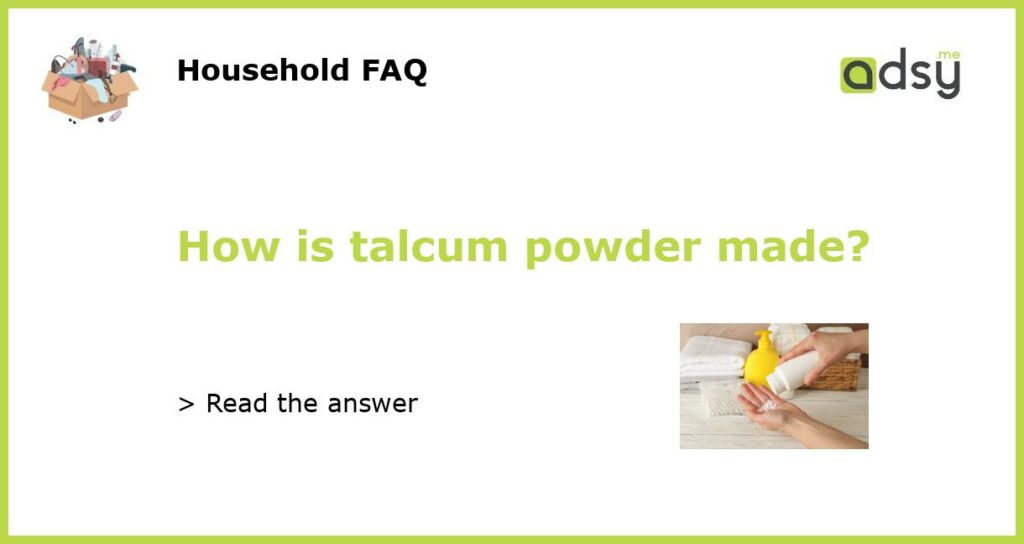What is talcum powder?
Talcum powder is a widely used personal care product that is made from talc, a mineral that is composed mainly of magnesium, silicon, and oxygen. It is commonly used as a drying and lubricating agent and is found in a variety of products such as baby powder, cosmetics, and bath powders.
The manufacturing process of talcum powder
The process of making talcum powder involves several steps. Here is a breakdown of how talcum powder is made:
Mining and grinding
The first step in the process of making talcum powder is mining the talc rock from the earth. Once the talc ore is obtained, it is then milled or ground into a fine powder. The goal is to create a powder with consistent particle size and distribution.
Purification and sterilization
After the talc is ground, it is purified and sterilized to eliminate any impurities or contaminants. This is done through a process called flotation, where the talc powder is mixed with water and chemicals to remove unwanted materials. The mixture is then filtered and dried.
Addition of fragrances and other ingredients
Once the talcum powder is purified, it can be mixed with various fragrances and other ingredients, depending on the desired end product. For example, if the talcum powder is intended to be used as baby powder, it may be mixed with ingredients that are gentle and soothing to a baby’s skin.
Packaging and distribution
After the talcum powder is properly mixed and any additional ingredients are added, it is then packaged into containers for distribution. The containers can range from small travel-sized bottles to larger jars or cans. The packaged talcum powder is then shipped to retailers or sold directly to consumers.
The safety concerns surrounding talcum powder
In recent years, there has been growing concern about the safety of talcum powder, particularly when used for personal hygiene. Some studies have suggested a possible link between the use of talcum powder and certain types of cancer, including ovarian cancer and mesothelioma, a cancer of the lungs and other organs.
These concerns have led to lawsuits against major talcum powder manufacturers, such as Johnson & Johnson, and the inclusion of warning labels on some talcum powder products. It is important to note, however, that the link between talcum powder and cancer is still being studied and has not been definitively proven.
If you have concerns about the safety of talcum powder, it is best to consult with a healthcare professional. They can provide the most up-to-date information and guidance based on your individual circumstances.






